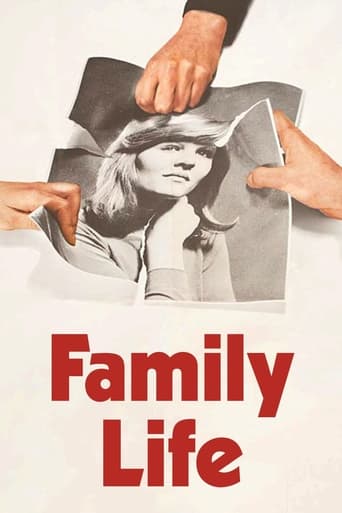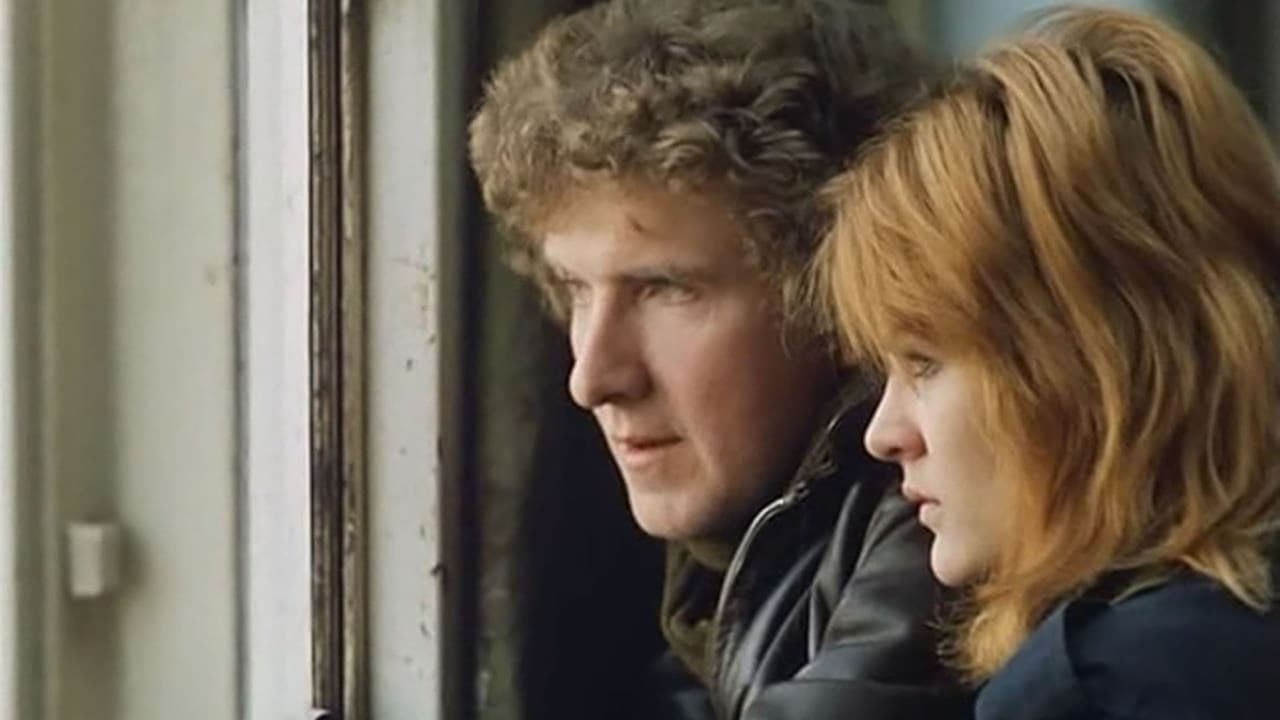Sindre Kaspersen
British social realist director Ken Loach's third feature film, an adaptation of the television play "In Two Minds" (1967) which was written by David Mercer (1928-1980) and directed by Ken Loach, was shot on location in Britain, and tells the story about 19-year-old Janice who has been brought up in a very strict working-class family. She lives with her mother and father who thinks she is irresponsible because she often changes jobs. Janice doesn't do what her parents want her to do and she stands up to them, so they decide that she is sick, talks her into having an abortion because they don't think she is fit to be a mother, sends her to a psychiatrist and eventually to a mental health institution.Acutely directed and with a straightforward narrative, this quietly paced and dialog-driven British independent film about social alienation and family relations touches the theme of Schizophrenia, and portrays a quiet study of character with a pointedly understated performance by Sandy Ratcliffe in her debut feature film role as a young woman who's way towards independence and self respect is obstructed by her parents, who are more interested in giving her directions and criticism rather than giving her the encouragement she needs her to live her own life. This compassionate, realistic and social documentary drama from the early 1970s, captures the failure in communication, the generational differences and the involuntary surrender of a 19-year-old woman who is being oppressed by her caretakers.Ken Loach has a take on depicting stories about individuals who are misconceived and wrongfully treated by society, and his gentle and attentive approach is commendable. As his second feature film "Kes" (1969), "Family Life" has heart, substance and relevance, and is a fine introduction to the works of one of Britain's greatest directors.
frrahier
Family Life I've seen this movie at the end of the seventies, in France, on TV. I registered it, but I lost the tape. Since, I remember a great film, the first of Ken Loach I think. Always in my memory is the last scene, Janice alone behind the students in the amphitheater's and doctor saying that the problem is in his mind and no in the relationship with her parents. I read in some reviews of this time that Ken Loach based his story on the "antipsychiatrics theories" of Dr. Ronald Laing and Cooper, that I studied in France when I was scholar, theories developed in the neighborhood of Jean Paul Sartre's existential psychoanalysis. Recently, a friend of mine, teacher of English literature in my college, initiate a curse on these problems with her students. She needs the original script of this film, but we don't know other that the French translation issued in the L'Avant-Scène french review.. Who could send me part of the script of this film (in English)? Thanks.
dbdumonteil
..and however,she's leaving home,at least mentally."Family life" is the most difficult,the most austere of all Kenneth Loach's efforts.One should add it's also his most dated.The generation gap,with these "boys and daughters who are beyond your command",all this looks like hippie relics.As do the mother's wailings:the youth is not what it used to be,they don't show respect anymore,they make love all day when they're not taking drugs etc.The generation gap is not typically sixties or early seventies.It's an all-time problem:For instance,Elia Kazan's "East of Eden" was made in 1954,and the action takes place circa 1914.So a lot of stuff at the beginning of "Family life" deals with clichés.Nevertheless,this movie is a must if you like the "European " style.Its form is absolutely unique,looking like a special report,a survey,with question/answer dialogues galore.At times,we wonder whether the actors are actually playing.We're close to "cinema verite" (see JL Godard's "masculin feminin" (1966))A viewer who would turn the TV on halfway through the movie,might think he's watching a documentary film.Janice is a rather normal young woman,with normal problems.she had a hard time of it when she had an abortion .Her mother is a puritan,rigid,and probably frigid woman,her father is a "honor and duty" man.Both content themselves with a routine nine-to-five life,and they are convinced that they are good parents.The father is proud of the clock his bosses have given to him,after 25 years of hard work,the mother of her jelly.Janice is some kind of misfit,and she's not unlike the main character from "la tête contre les murs"(George Franju,1958).But there's a huge difference:Franju tells a story,Loach does not.No dramatization at all in the English director's film.There is a similar scene in the two movies:both inmates escape ,take refuge in their girl/boyfriend's flat,then the police come:Franju's character is desperate,revolted,Janice is already a zombie,she cannot react anymore.A lot of people said the shrinks were caricatures in "family life":completely true as far the last one is concerned.But the first one ,on the other hand ,sees well:three times,he asks the father if his sexual relations are satisfying ,and every time he tries to change the subject.Kenneth Loach has come a long way from the documentary style of "poor cow"(1967) and "family life".It's interesting to note that the movie midway between ,"Kes" (1969),is more accessible,being more storybook.During the eighties and nineties,with such works as "hidden agenda" and the wonderful "carla's song",Kenneth Loach will prove he can be a story teller too.
chris.murray3
Ironically this film comes across as being considerably more true to life than the numerous "docusoaps" that currently clog up the schedules on British television. Watching Family Life is as close as one can get to feeling like an actual fly on the wall. Sandy Ratcliffe is heartbreaking as the young dazed and confused schizophrenic girl, whose condition deteriorates thanks to her domineering parents. Bill Dean and Grace Cave are all too believable as the aforementioned mother and father, and are true screen monsters. Despite never believing that they are in the wrong, neither of the "oh so reasonable" parents are able to see beyond the end of their noses.This film does have some touching moments but, alas, the ending is not a happy one. Which is especially a shame as the film does occasionally allow a faint glimmer of hope shine through.


 AD
AD



